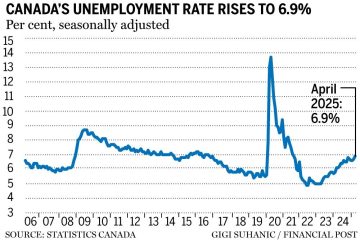Recent Trends in Bus Cancellations Across Canada

Introduction
In recent months, bus cancellations have surged across Canada, impacting daily commuters, students, and travelers alike. With winter weather and operational challenges contributing to this trend, it has become increasingly important for passengers to stay informed about changes to their bus schedules. The implications of these cancellations extend beyond inconvenience, as they can affect work commitments, educational opportunities, and essential travel plans.
Current Events and Statistics
According to the latest reports from local transit authorities, bus cancellations increased by 35% this winter compared to last year. Factors such as harsh weather conditions, including heavy snowfall and icy roads, have played a significant role in these disruptions. On January 12, 2023, for example, a severe winter storm led to over 200 bus cancellations in Toronto alone.
Furthermore, operator staffing shortages due to illness and recruitment challenges have compounded the issue. For instance, a major provincial transit agency recently announced that they were operating at only 70% of their required staffing levels, leading to significant service reductions. The city of Vancouver, grappling with similar issues, has indicated that they are prioritizing essential routes to minimize disruptions.
Impact on Commuters
For many, these cancellations create daily frustrations. Passengers relying on public transport often find themselves stuck waiting for alternate services or forced to make last-minute travel arrangements, which can escalate their commuting times and stress levels. Students have particularly been impacted, as many rely on buses to reach schools and universities. Coordinators from various educational institutes have expressed concern over attendance and academic performance due to unpredictable bus service.
Looking Ahead
As transit authorities work to address the challenges posed by cancellations, many are investing in technology that could improve communication with passengers. Real-time updates through mobile apps and improved website information are expected to become standard, enabling commuters to make informed decisions about their travel plans.
Additionally, local governments are exploring expedited hiring processes and training programs to alleviate staffing shortages, aiming to restore bus schedules to their full capacity this spring. Meanwhile, residents are encouraged to stay updated via their city’s official transit channels to combat the disruptions effectively.
Conclusion
As Canada navigates through these months of increased bus cancellations, it is vital for commuters to remain aware of the changing landscape of public transportation. The bus cancellation trend illustrates the need for resilient transit systems that can adapt to both environmental challenges and workforce limitations. By staying informed, passengers can better prepare for their journeys and advocate for improved transit services in the future.









